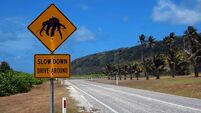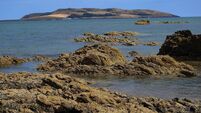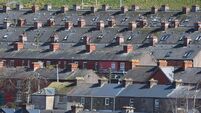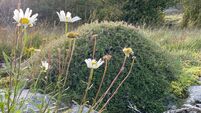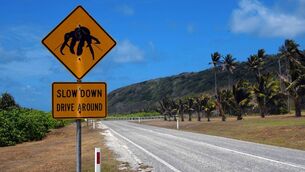Juanita Browne: I found a wasp nest — does it need to be destroyed immediately?
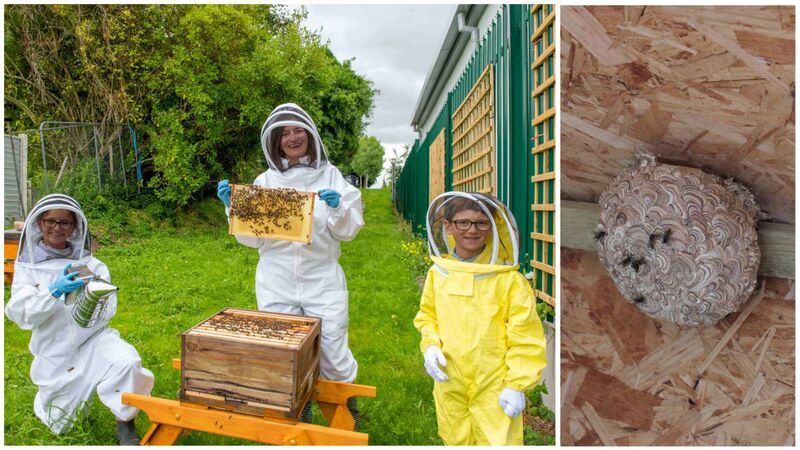
Left: Iulia, 10, and seven-year-old Eric Dumitrescu, along with mum Anda, a consultant paediatrician at CUH and beekeeper, at the launch of the apiary project at the hospital, funded by CUH Charity. The beehives have been installed to help ease the fears of children who have suffered life-threatening reactions to bee and wasp stings. Picture: Brian Lougheed. Right: Wasp nest. Picture: Juanita Browne
The other day I noticed a few wasps flying in and out of a dog kennel we have in our back garden. Inside, I discovered a medium-sized nest hanging from the ceiling. It’s important to explain that our dogs are far too spoiled to ever use this kennel, preferring instead to nap on an armchair or under my desk during the day and sleep in our utility room at night.
But when I told my husband and boys about the new residents, they wanted me to destroy the nest immediately, because ‘wasps are dangerous’. My 13-year-old has a very understandable dislike of wasps, having been stung 16 times in about 5 seconds when he accidentally stepped on a nest hidden in long grass a few years ago. As part of his pitch, he asked 'but what are wasps for?’




